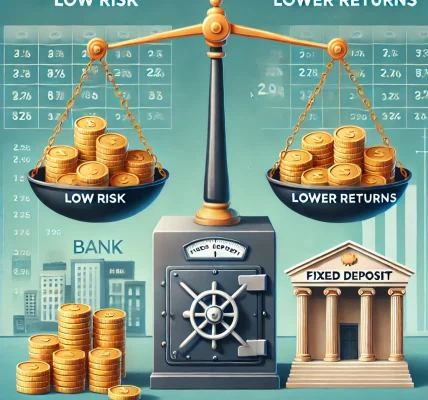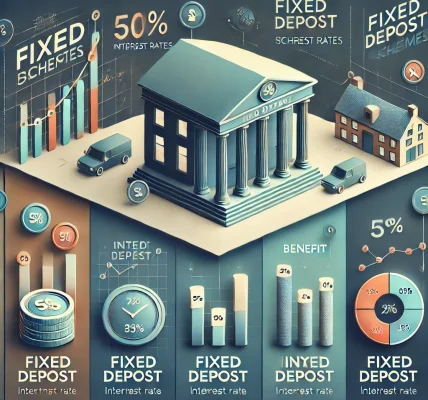Introduction
Forex trading has gained immense popularity among retail and institutional traders looking to profit from currency fluctuations. However, to succeed in forex trading, selecting the right trading platform is crucial. The best forex trading platforms provide fast execution, advanced analytical tools, robust security, and user-friendly interfaces.
This guide will walk you through the key factors to consider when choosing the best forex trading platform and provide a detailed comparison of top platforms available in 2025.
1. What is a Forex Trading Platform?
A forex trading platform is software that allows traders to access the forex market, place trades, analyze price movements, and manage risk. These platforms are offered by forex brokers and vary in terms of features, fees, and accessibility.
Some of the most popular forex trading platforms include MetaTrader 4 (MT4), MetaTrader 5 (MT5), cTrader, and proprietary platforms developed by brokers.
2. Key Factors to Consider When Choosing a Forex Trading Platform
1. Regulation and Security
- Always choose a regulated broker to ensure the safety of your funds.
- Regulatory bodies such as FCA (UK), ASIC (Australia), CySEC (Cyprus), and CFTC (USA) oversee brokers to ensure compliance.
- The platform should provide encryption, two-factor authentication (2FA), and segregated accounts to protect users from fraud.
2. Trading Fees and Spreads
- Different platforms charge different fees, including spreads, commissions, and overnight swap fees.
- Look for a platform that offers low spreads and transparent fee structures.
- ECN brokers often provide raw spreads with a small commission, while market maker brokers might have slightly wider spreads but no commissions.
3. Execution Speed and Reliability
- Fast order execution is crucial in forex trading, especially for scalpers and day traders.
- Look for platforms that offer low latency and minimal slippage.
- Ensure the platform has a reliable uptime record, preventing unnecessary downtimes during volatile market conditions.
4. Available Trading Tools and Features
- Advanced charting tools, technical indicators, automated trading options, and risk management features are essential for effective trading.
- Some platforms, like MT4 and MT5, offer customizable scripts and expert advisors (EAs) for automated trading.
- Economic calendars, news feeds, and integrated analysis tools can provide valuable market insights.
5. User-Friendly Interface
- Whether you’re a beginner or an experienced trader, a platform should be easy to navigate.
- Demo accounts help new traders familiarize themselves with the platform before committing real funds.
6. Mobile Trading Capabilities
- A good forex trading platform should offer a mobile app with seamless functionality, allowing traders to monitor and execute trades on the go.
- Look for platforms with responsive designs, push notifications, and smooth order execution on mobile.
7. Asset Availability
- Ensure the platform supports major, minor, and exotic currency pairs.
- Some platforms also offer CFDs on stocks, indices, commodities, and cryptocurrencies for diversified trading opportunities.
8. Customer Support and Educational Resources
- 24/5 or 24/7 customer support via live chat, email, or phone is essential.
- Look for brokers that offer educational materials, webinars, tutorials, and trading guides to help traders improve their skills.
3. Best Forex Trading Platforms in 2025
1. MetaTrader 4 (MT4)
✅ Most widely used forex trading platform ✅ User-friendly interface with extensive customization ✅ Supports automated trading through Expert Advisors (EAs) ✅ Available on desktop, web, and mobile
⚠️ Limited built-in fundamental analysis tools ⚠️ No support for trading multiple asset classes beyond forex and CFDs
2. MetaTrader 5 (MT5)
✅ Enhanced features compared to MT4, including more timeframes and order types ✅ Supports multi-asset trading (stocks, commodities, crypto, etc.) ✅ Advanced charting tools and economic calendar
⚠️ Slightly steeper learning curve than MT4 ⚠️ Limited broker support compared to MT4
3. cTrader
✅ Designed for ECN trading with raw spreads ✅ Advanced order execution and depth of market (DOM) ✅ Customizable interface with more charting options than MT4/MT5
⚠️ Fewer brokers support cTrader ⚠️ Higher learning curve for beginners
4. NinjaTrader
✅ Ideal for advanced traders and algorithmic trading ✅ Supports futures, forex, and equities trading ✅ Advanced backtesting and market analysis tools
⚠️ Requires a paid subscription for full functionality ⚠️ Not as widely supported as MT4/MT5
5. Proprietary Broker Platforms (e.g., IG, eToro, TD Ameritrade)
✅ Intuitive web-based and mobile trading ✅ Integration with social trading and copy trading features ✅ Unique analytical tools and market insights
⚠️ Limited customizability compared to MT4/MT5 ⚠️ Some proprietary platforms lack advanced automation features
4. Choosing the Right Platform Based on Your Trading Style
| Trading Style | Recommended Platform |
|---|---|
| Beginners | MT4, eToro |
| Scalpers | cTrader, MT5 |
| Algorithmic Traders | NinjaTrader, MT5 |
| Fundamental Traders | Proprietary Broker Platforms |
| Swing/Day Traders | MT4, MT5, cTrader |
5. Conclusion: Which Forex Trading Platform is Best for You?
Selecting the best forex trading platform depends on your trading experience, strategy, and personal preferences.
- If you’re a beginner, MT4 or a broker’s proprietary platform is a great choice due to ease of use.
- If you require advanced trading tools, MT5 or cTrader might be better suited.
- For algorithmic trading, NinjaTrader or MT5 offer excellent automation features.
Before committing to a platform, test it through a demo account, check its fee structure, and ensure it aligns with your trading goals.
Final Thoughts
The right forex trading platform can significantly impact your trading success. By choosing a secure, regulated, feature-rich, and user-friendly platform, you can maximize your potential while managing risks effectively.
Which forex trading platform do you prefer? Share your thoughts in the comments below!
Disclaimer:
This article is for informational purposes only and does not constitute financial advice. Always conduct your own research and consult a professional before making trading decisions.




